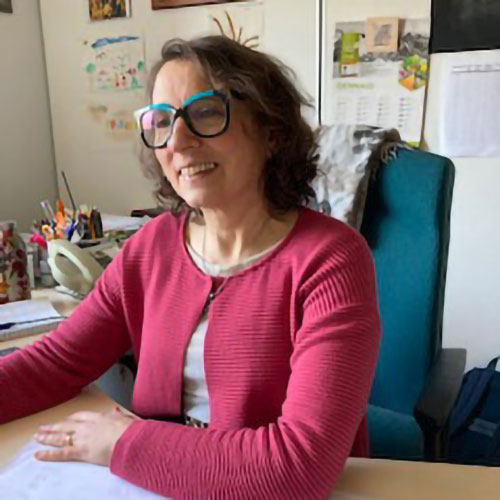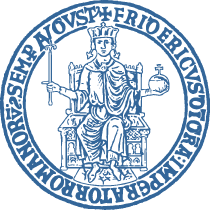Marco De Vivo
Director
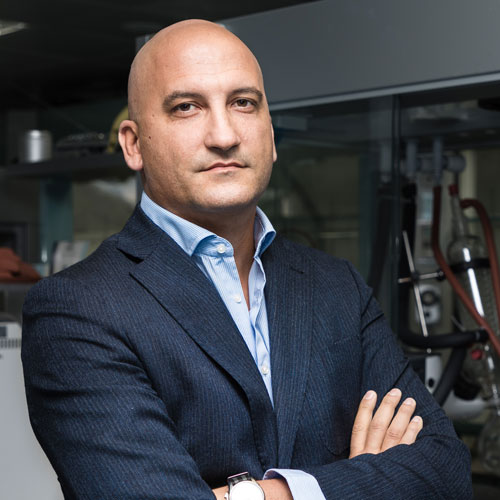
Dr. De Vivo is Director of the Molecular Modeling and Drug Discovery laboratory at the Italian Institute of Technology (IIT). He is also Director of the Italian CECAM-IT-SIMUL node of the CECAM (Centre Européen de Calcul Atomique et Moléculaire, https://www.cecam.org) organization, which promotes advanced computational methods for important problems in frontier areas of science and technology. The lab develops and applies computational methods to achieve an atomic-level comprehension of chemical systems, and to use this information to design potent inhibitors and nanoparticles with programmed properties as a promising starting point for drug discovery programs. His research activity is partially supported by the Italian Association for Cancer Research (AIRC). In 2017, he received the ACS COMP OpenEye Outstanding Junior Faculty Award. He is a member of the Editorial Advisory Board of scientific journals like JCIM (ACS Publications) and Chem (Cell Press), and sits in the Scientific Advisory Board of BiKi Technologies, a start-up company that provides innovative tools based on molecular dynamics for drug discovery. He is an Associate Editor of the Journal of Chemical Theory and Computation (ACS publication), which is the reference journal for the broad community of computational chemists
Carlo Massimo Casciola
Node Representative for Sapienza University of Rome
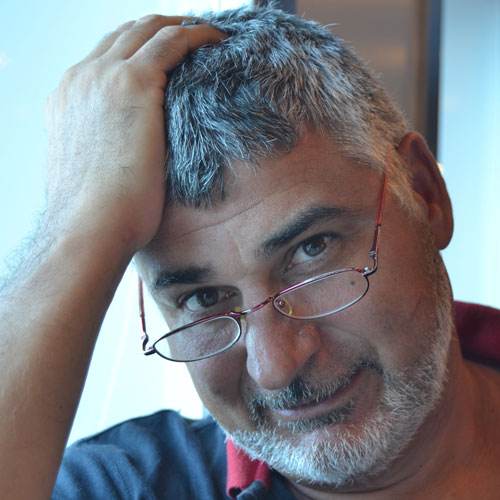
Full professor of Fluid Mechanics at the Department of Mechanical and Aerospace Engineering at Sapienza University of Rome. He was among the promoters of the former CECAM-IT-Sapienza node, that later evolved into the present CECAM-IT-SIMUL, which he directed from its foundation until 2015. He leads a research group working on the fluid dynamics of complex flows oriented toward fundamental, numerical and experimental modeling of macroscopic flows, e.g. turbulence, microfluidics and nanofluidics. After being awarded the ERC Advanced Grant 2013 BIC, a significant part of the research work has been focused on cavitation, rare event techniques for microscopic and mesoscopic problems, bubble collapse modeling, bubble-wall interactions, bio-medical applications of cavitation.His group is presently developing a demonstrator for cavitation enhanced endothelial layer permeability based on a blood-vessel-on-chip, project started under the auspices of the ERC PoC Grant 2017, INVICTUS.
Giorgio Colombo
Node Representative for University of Pavia
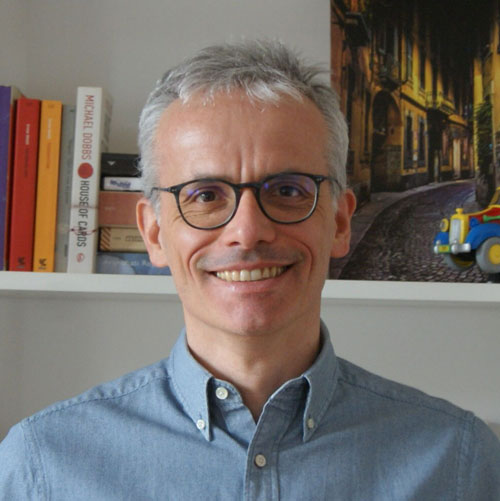
Giorgio Colombo is a Full Professor of Organic Chemistry at the University of Pavia. He holds a PhD in Chemical Sciences. After one year as a visiting scientist in the laboratory of Prof. Ken Merz at the Pennsylvania State University, and a postdoc with profs. H. Berendsen and A. Mark at the University of Groningen, Giorgio Colombo joined the Institute for Molecular Recognition Chemistry, Italian National Research Council, in Milan where he founded the Computational Biochemistry Lab, which he currently heads. In 2017 he moved to the University of Pavia, where he started a new lab of computational chemistry and biology. In January 2021, he has been appointed Coordinator of the PhD School of Chemical and Pharmacological Sciences.
His research aims to explore the links between structure, conformational dynamics and molecular recognition to identify the atomistic determinants of self-organization in biochemical systems, principles of host-guest molecular recognition, and their relationships to the function and the design of new molecules with interesting properties. These objectives are pursued through a combination of existing and newly developed computational and theoretical techniques. Insights gained from these studies are used to define new principles for the design of molecular biosystems with interesting activities. The group has developed simple and efficient methods for the design of allosteric modulators of molecular chaperones, self-organizing systems, diagnostic probes and vaccine candidates from the analysis of the 3D structures of viral (or bacterial) proteins. Research is supported by a number of external national and international grants.
Tiziana Marino
Node representative for University of Calabria
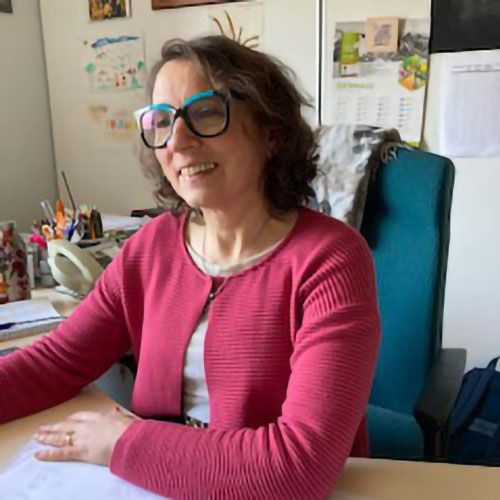
She is Associate Professor of General and Inorganic Chemistry at the CTC Department of University of Calabria. Since 2013, she is a member of the University Research Doctorate College Title: "TRANSLATIONAL MEDICINE".
Since 2018 Member of the Board of the Inorganic Chemistry Division of the Italian Chemical Society and since 2020 President of the Italian Chemical Society-Calabria Section.
Her research activity is focused on the theoretical study, essentially in the field of density functional theory (DFT), of the elementary mechanisms of biological processes catalyzed by metalloenzymes and biomimetics as well as of those characterizing homogeneous catalysis. Computational enzymology represents the main topic combining investigations performed both at the pure quantum mechanical level (QM) and at the hybrid level (QM/MM). Lately the study of the antioxidant activity of natural molecules gained financial support from Ministero degli affari esteri e della cooperazione internazionale (MAECI) consolidating scientific collaborations with UAM and UNAM of Mexico City.
Furthermore, her research activity also includes the application of methods based on mechanics (MM) and classical Molecular Dynamics (cMD).
Giovanni Maria Pavan
Node Representative for Polytechnic University of Turin
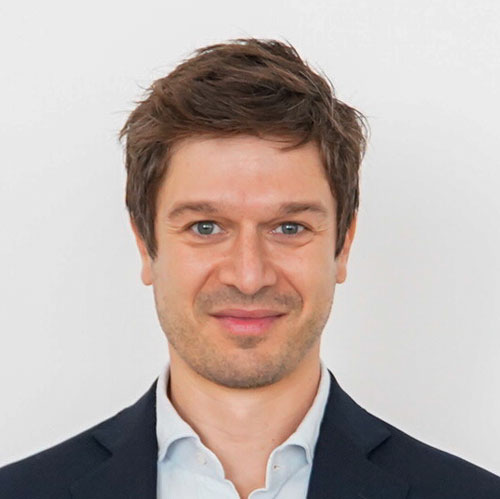
Giovanni M. Pavan is full professor at the Department of Applied Science and Technology (DISAT) of Politecnico di Torino, Italy, where since 2019 he leads the Computational Physical Chemistry (CPC) Laboratory. He is also full professor at the University of Applied Sciences and Arts of Southern Switzerland (SUPSI) in the Department of Innovative technologies (DTI), where he is the head to the Computational Materials Science (CMS) Laboratory of the Institute for Mechanical Engineering and Materials Technology (MEMTi).
The research in his group (www.gmpavanlab.com) focuses on the combination of multiscale molecular modeling, advanced simulation approaches, and machine learning to investigate the fundamental factors controlling complex molecular systems. Fields of interest span from physics to chemistry and materials science. Examples include, among others, self-assembling systems, stimuli-responsive and adaptive supramolecular systems, auto-regulated and “living” artificial materials, emergent properties and complexity in complex molecular systems, rational molecular design, bioinspired materials, bioinspired control of chemical reactions. He is coauthor of more than 90 publications in high-impact peer-reviewed scientific journals. His research has received various awards and competitive funding from national and international institutions, including, e.g., a prestigious ERC Consolidator Grant 2018 (project acronym: DYNAPOL), a H2020 FET Open, three SNSF projects, as well as research contracts from companies.
Nadia Rega
Node representative for University of Naples, Federico II
Carlo Pierleoni
Node representative for University of L’Aquila
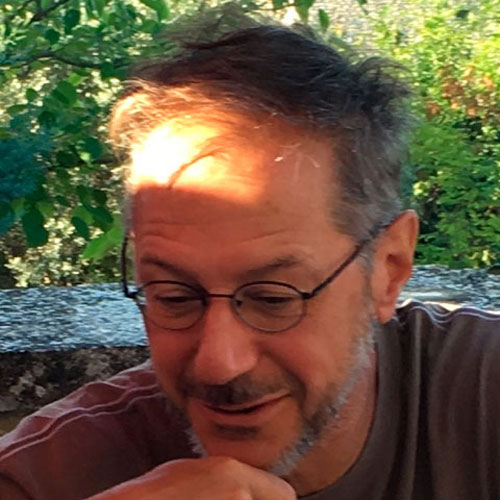
Full professor of Condensed Matter Theory at the Department of Physical and Chemical Sciences of University of l’Aquila - Italy. He graduated cum laude in Physics at the University of Rome “La Sapienza” and obtained his PhD in Physics at the Free University of Brussels (ULB) in 1992. After a period as Post-doc in Paris LPTL Jussies and CECAM at Orsay and ENS-Lyon, he became researcher at the University of L’Aquila in 1994. He was visiting researcher at ENS-Lyon in 2001-2002, Schlumberger visiting Professor at the Department of Theoretical Chemistry, University of Cambridge (UK) in 2005 and 2007, visiting Professor at the Physics Department, University of Illinois at Urbana-Champaig (USA) in 2008, Visiting Professor at the Jawaharlal Nehru Centre for Advanced Scientific Research, Bangalore India in 2009 and Visiting scientist at the “Laboratoire de Physique et Modélisation des Milieux Condensés”, CNRS Grenoble in 2016. He benefited from an ANR research grant in the period 2016-2020 at Maision de la Simulation, CEA-Saclay France.
His research activities are in Computational Statistical Mechanics of polymers and soft matter systems and Quantum Many-Body systems. He developed the Coupled Electron-ion Monte Carlo (CEIMC) method, and ab-initio simulation method with Quantum Monte Carlo accuracy. In recent years he devoted his interests and efforts to applications of CEIMC and other QMC methods to the Physics of high pressure hydrogen both in the solid and in the fluid phase.
Olivia Pulci
Node Representative for University of Rome Tor Vergata
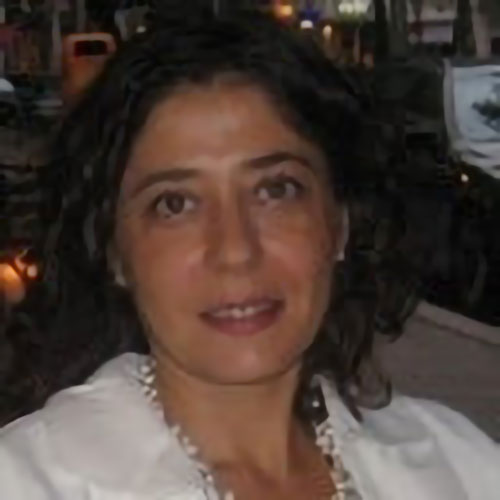
University of Rome "Tor Vergata" Department of Physics, and INFN, Rome, Italy Rome, Italy . Prof. Dr. Olivia Pulci obtained her PhD in physics from Tor Vergata University in 1996. After post-doctoral works at the Friedrich Schiller Universit at, Jena, Germany, at the Ecole Polytechnique, Palaiseau, France, and at the Max Plank Institute "Fritz Haber", in Berlin, she was a Researcher at Rome Tor Vergata until 2010, when she took up her present post as Associate Professor in Physics. Her research interests include ab-initio calculations of the electronic and optical properties of low-dimensional semiconductor structures (as surfaces, novel 2D systems, nanocrystals), but also of ice, water, and of cellulose for cultural heritage preservation.
Guido Raos
Node Representative for Polytechnic University of Milan
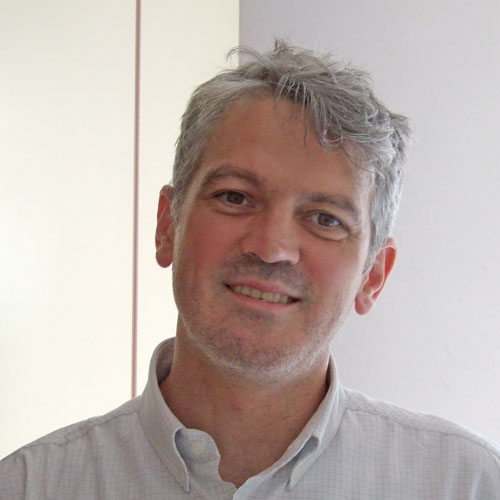
Dept. of Chemistry, Materials and Chemical Engineering "G. Natta" Politecnico di Milano, via L. Mancinelli 7, 20131 Milano, Italy. Guido Raos is full professor of chemistry at the Politecnico di Milano. He holds a degree in chemistry from the University of Milano and a PhD in theoretical chemistry from the University of Bristol. At the Politecnico, he has taught courses at all levels, from general chemistry for first-year students to molecular simulation and polymer physics courses at the PhD level. His research interests focus on the application of computational and molecular modeling methods to materials, with a special emphasis on polymers. He is also active in promoting the application of molecular simulation methods to engineering problem, though the organization of the MolSimEng series of workshops. Guido is also active in scientific outreach, as a proponent and organizer of courses introducing Politecnico’s PhD students to technical writing on Wikipedia. He is a member of IUPAC’s Polymer Division and Subcommittee on Polymer Terminology.
Walter Rocchia
Node Representative for Istituto Italiano di Tecnologia
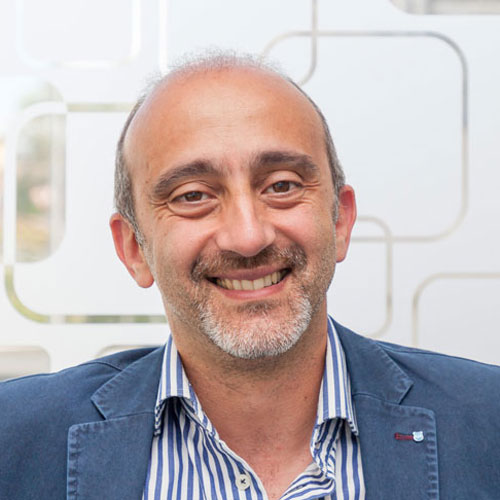
Graduated cum laude in Electronic Engineering on July 1996, with a thesis on Quantum Computing. In February 2000, he got a PhD in Electronic Devices at the University of Trento. He then was a Research Scholar at the Biochemistry Department of the Columbia University, developing models to calculate the electrostatic field generated by biological macromolecules in solution. As a consultant in the Corporate Technology Centre at Honeywell Int (NJ, USA), and then at the Bioengineering Research Centre "E. Piaggio" of University of Pisa he studied the modeling of the physical properties of actuating polymers and nanotubes in a wet environment. In 2003 he joined the Molecular Biophysics group of National Enterprise for nanoScience and Nanotechnology (NEST-INFM-CNR), at Scuola Normale Superiore of Pisa, working on molecular recognition and targeting. There, he extended his interests from algorithms for speeding up and making more accurate the calculation of the electrostatic interaction energy of biomolecules to Bioinformatic and Biostatistical techniques aimed at identifying targets and engineering molecules involved in biochemical pathways of medical relevance.
Daniele Fazzi
Node Representative for University of Bologna
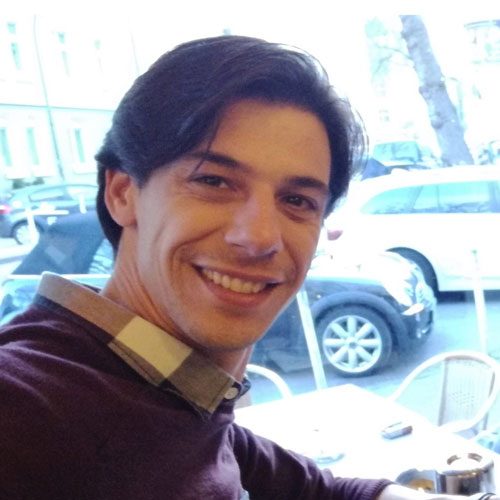
Daniele is associate professor at the Department of Chemistry “Giacomo Ciamician”, University of Bologna. He earned his PhD in Materials Engineering at Politecnico di Milano, with a thesis on modelling the photoinduced and charge transport properties in organic materials. He spent three years as Junior Post Doc. at the Center of NanoScience and Technology of the Italian Institute of Technology (IIT) in Milan (CNST@PoliMi). In 2013 he moved to Germany, where he was Senior Post Doc. at the Max-Planck-Institut für Kohlenforschung, working in the Theoretical Chemistry division headed by Prof. W. Thiel. In 2014 he was awarded by the Alexander von Humboldt post doctoral fellowship, with a project about the time dependent quantum-chemical modelling of ultrafast photoinduced processes in organic materials. In 2018 he earned a DFG Principal Investigator Grant and he became group leader at the Institute for Light and Matter, Department of Chemistry, University of Cologne (Germany). In 2019 he became a member of the cluster of excellence initiative QM2 (Quantum Matter and Materials), and in 2019 he was awarded as Emerging Investigator by the RSC Journal of Materials Chemistry C. In 2021 he moved at the Department of Chemistry “Giacomo Giamician”, University of Bologna, as tenure-track associate professor. Since 2023 he is a member of the international Global Faculty Programme of the University of Cologne.
His research is focused on modelling via quantum-chemical and atomistic-based methods the "structure-property" relationships of soft organic and hybrid materials, focusing on understanding the solid-state phase transitions, the electronic and vibrational structures, the charge and exciton transport mechanisms, and the ionic diffusion processes in condensed phase.
Fabio Affinito
Node Representative for Cineca
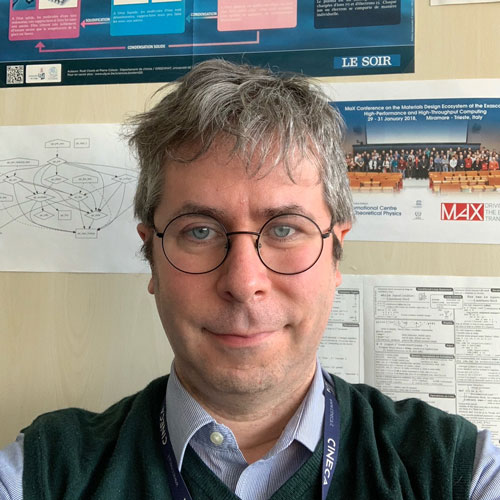
Fabio Affinito is leader of the Application Support team at Cineca. He graduated in Physics in 2003 at University of Rome “La Sapienza” with a thesis on Quantum Monte Carlo applied to the calculation of Fermi Liquid parameters for 2DEG. He got his PhD at the University of Modena and Reggio Emilia with a thesis on the multi-scale simulation of ion channels. Then, he had a postdoc scholarship for two years at SISSA in the group of Biological and Statistical Physics. From 2010 he’s working at Cineca where he supports the applications in the field of electronic structure and molecular simulations. He participates to the PRACE project and to the MaX and TREX Center of Excellence, funded by the EU.
Attilio Vittorio Vargiu
Node Representative for University of Cagliari
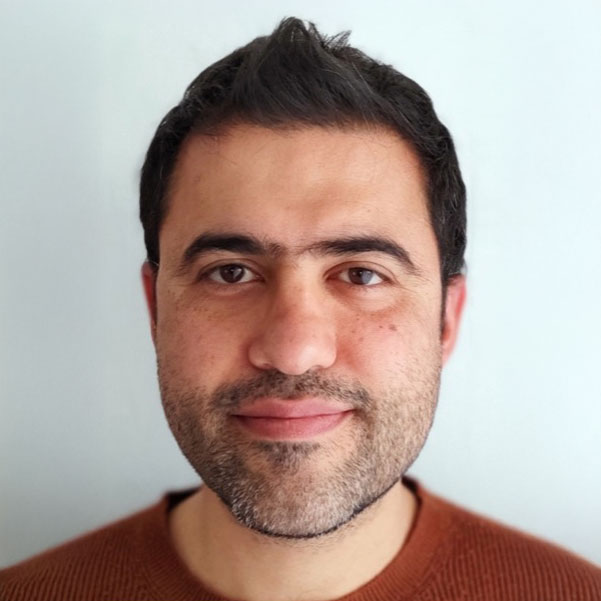
Attilio Vittorio Vargiu earned his degree in Physics from the University of Cagliari, Italy, in 2003. He then pursued his doctoral studies at the International School of Advanced Studies (SISSA/ISAS) in Trieste, Italy, obtaining a Ph.D. in Statistical and Biological Physics in 2008. Following his Ph.D., he conducted post-doctoral research at various institutions, including the University of Cagliari, the Jacobs University of Bremen (Germany), and the University of California at Berkeley (USA). Between 2013 and 2017, Attilio held the position of Assistant Professor (untenured) in Applied Physics at the University of Cagliari. Subsequently, he undertook another post-doctoral fellowship at the Department of Chemistry of the Utrecht University in the Netherlands, lasting until 2019. In 2019, he returned to the University of Cagliari as a tenured Assistant Professor in Applied Physics. Since 2022, Attilio has been serving as an Associate Professor in the same University.
Attilio's research focuses on the computational simulation of biological macromolecules, peptides, small molecules, membranes, and their assemblies. His work leverages an array of sophisticated computational techniques, including quantum-based methods, all-atom and coarse-grained modeling, enhanced-sampling and machine-learning approaches. Primary areas of research include developing accurate methodologies and protocols for predicting complex protein-ligand structures, investigating bacterial antibiotic resistance mediated by multidrug transporters, and studying the self-assembly of chiral peptides with potential applications in technology and biomedicine.
